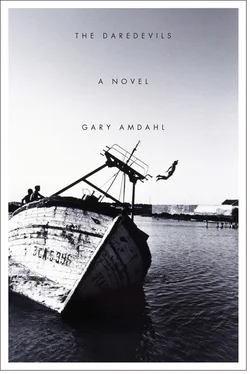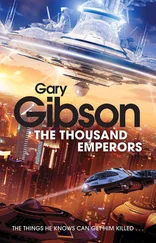He remembered reading the article in Hearst’s ridiculous newspaper, about the cleverness of anarchists and the need for precise amounts of rope, pretending to not be able to read very well, making his brothers laugh, if not Father.
McGee, for the moment a gregarious blustering small-town booster to Charles’s pensive aristocrat, settled matters and set the tone very quickly. He admitted that there had been serious miscommunication, but wanted, in return, for Charles to admit that he had been behaving a little oddly in Fargo or Moorhead or wherever the hell it was, when he interfered—“Perhaps correctly!” Winter shouted generously — with the arrest of Daisy Gluek. He then went a little further and said that the patriots in Bemidji were indeed out of hand, that was in the nature of patriots, but insisted that no real harm had been done, and that in fact a real service might have been provided Charles.
“How’s that?” Charles asked, smiling. He started to take off his clothes so he could show Winter his burn scars. Because all three men were suffering some kind of breakdown, Charles ended up naked, McGee talking on obliviously, Winter turned away in musical comedy disgust.
“You’re not going to be the kind of leader who lets other people do all the dirty work, are you? You’re not going to be that kind of fucking playboy progressive, are you? Your brother-in-law is a notable man of God: Are things going to be very prim and proper in the Minot White House? When you or your people finally get your ass in the war where it belongs, will that ass be lounging about on mounds of Louis XV bullshit, pouring tea for generals? Or will it be getting itself shot off in the trenches with the little people you apparently care so deeply for.”
“My God,” said Charles. “You are one glib mound of bullshit yourself.”
McGee roared at the insult with apparently genuine amusement.
But Charles had opened the sluice a bit too fully. “You’re what, a kind of good-old-boy American version of a middle-ranking pea-brained Hapsburg bureaucrat? Abusing the little people — shooting them in their fucking HEADS AND LICKING YOUR BOSS’S BOOTS?”
McGee took a long time to stop laughing, and did so by degrees. He then became briskly sincere. It was no doubt a calculated sincerity, but it worked, as Charles sat back in his chair and realized that not only was he ashamed of himself, not only was he hotheaded and losing focus — losing everything, losing everything again and again and again when he could see it, see peace and freedom so clearly — he was naked. Whoever had gotten shot in the head, for whatever reason, had simply vanished, as he knew all illusions eventually must, revealing only the deepest, most beautiful truth. Winter finally smiled at him, in a lovingly avuncular way. He said he understood that a place in the war was being prepared for him, and that Charles would be leaving soon. Whatever the nature of his duties might turn out to be, Winter was confident that they would be important duties, and that he would perform them in a way that would make all Americans proud. He even went so far as to say he hoped Charles would stay in touch, suggesting that the MCPS would be only too happy to make use of his patriotic valiance as they explained to members of Congress and so on, and yes, sure, publicized, one had to nowadays, in order to justify budgets and so on, their work on the home front.
“Do put your clothes back on, though, will you, please?”
McGee then cleared his throat and spoke much more quietly, with much more gravity. There was one last job Charles could do here, in the time he had left in the land of ten thousand lakes, a job that was actually quite dangerous, something only a daredevil political operative could take on, and certainly one that would be forbidden him as he rose to greater and greater power. It would be, McGee said candidly, his only real chance to indulge himself in the kind of hard, necessary work that most men — not just the lazy cheats who tried to ride other men’s backs into cushy situations, but good, honest, practical men, scholars, soldiers, leaders! — tried assiduously to steer clear of, but which one of TR’s boys would seek avidly. One needed clean hands and a cool head and an unresentful acceptance of the world for what it was. One needed a kind of indifference.
Charles looked up at this word, frightened, and Winter looked at him as if he had been reading Charles’s mind all along and knew everything. Yes: one smart daredevil was called for, and a young man who was going to be president of the United States someday soon could not hope for even once chance to be a real daredevil. He would have to content himself, if that was how he wanted voters to see him, to merely act the part as his responsibilities grew exponentially every day he remained alive, as more and more people came to depend on his presence, as America became the mightiest nation on Earth.
He would also be able pluck his trollop from the net, and whatever fate might await her once she was entangled.
The opportunity Charles was presented with was clearly to hang himself: he was to organize and manage the planting and blowing of a small bomb at a rally of striking streetcar operators, similar in nature and scope to the Preparedness Day Parade bomb, in the lost city of San Francisco, but hopefully without any loss of life. It was the simplest kind of frame-up, maybe even one people were getting tired of — thus the wish to keep the bloodshed at minimum — in which the streetcar union would look like the usual bunch of mad foreign nihilists, and the owners of the line straightforwardly the good American businessmen they in fact were. But because it involved railroads in some way, and therefore the loathsome idiot Durwood Keogh — the Midwestern “railroad” Minots might as well have been Martian Minots for all they appeared to care, which was perhaps a snub to the high-living Western dandies — and because his troubling but profoundly real love of his late father was finding a kind of expression in the desire to harm “railroad people,” he thought he might turn, as it were, the bomb around. He knew that in any case he had to play along for a while longer, if only because he didn’t understand everything that was at stake, everything that might be at stake. What he knew incontrovertibly to be at stake was the health and welfare of Vera and the foetus she was still somehow carrying.
Charles told Vera that he had taken his clothes off, and that while he was standing there naked, he smoked a cigarette that Winter had offered him. As the three men smoked they had conversed as if sincerely about Charles being the president of the United States. He told Vera that though he remembered it clearly, vividly, the way he had just described it, he did not think he could believe it. Vera, however, had no trouble believing that it had happened, and happened just like Charles said it had. She said she had to wonder at Charles’s confusion and disbelief: Did he think he was in a play where there were rules and regulations about how people appeared and acted in reality? He readily admitted that he did not, but was nevertheless surprised that Winter and McGee did not, either.
“They don’t care if you’re naked or flayed or covered in tar and feathers or dressed up like Pierrot for a fancy ball!”
“And they sounded so bloody sincere about me being president! I had to wonder myself, if such a thing was possible! That they could create me and work me like that! When I know good and well that for all TR’s faults, he would lead a revolution before he allowed something like that to happen! Those men are mad, aren’t they, Vera? I have to ask. I mean, truly, clinically mad? As in, they ought to be in straitjackets in a hospital?”
Читать дальше












